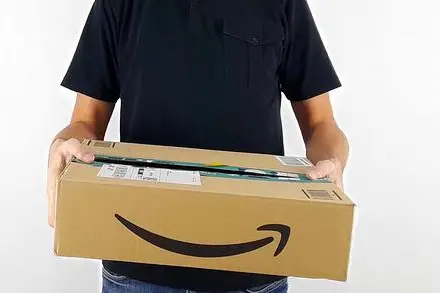Amazon latest expansion into the health care sector, with its purchase of One Medical for $3.9 billion, is part of a broader strategy to acquire companies which complement its business model.
Meghan Fitzgerald, health care policy professor at Columbia University, said in an interview, “What One Medical has — which I think Amazon likes and there’s a lot of synergy — is they have a subscription model. They have what’s called a 5-to-1 model. You get five virtual telehealth visits and one in-person visit, right? Now that fits the Amazon model for possibly having an online experience.”
Amazon began its entry into the health care sector with its purchase of PillPack in 2018. It rebranded it as Amazon Pharmacy in 2020, and the subsidiary now allows customers to order prescription drugs at discounted rates.
Amazon is now partnering with the pharmacy chain Rite Aid, and as of June 27th, customers can pick up their prescription orders at more than 100 Rite Aid stores. That will expand to more than 1500 locations by the end of the year.
Amazon also began to test telehealth services by offering Amazon Care to its workers, a telehealth benefit allowing workers to quickly consult with doctors through telemedicine with a quick screening process. Amazon Care began as a pilot program is Seattle in 2019, and has now expanded to 20 other cities as well as other companies like Hilton (HLT), TrueBlue (TBI) and Silicon Labs (SLAB). In 2021 the program was servicing 40,000 workers in total.
Amazon has experienced failures along the way. Amazon teamed up with Berkshire Hathaway and JP Morgan in 2019 on a joint program called Haven, which was supposed to disrupt the health care industry, but it never caught traction and disbanded in 2021.
Fitzgerald noted, “Amazon has learned to be very resilient and fail fast,” and it was success with PillPack and Amazon Care that was “really what gave them the confidence to make this acquisition and try to aggregate physicians in 25 markets.”
Amazon will be competing in this space with UnitedHealth Group (UNH) and its subsidiary Optum Health or CVS Health’s Aetna, and it remains to see how it will do.
Fitzgerald noted One Medical’s subscription based coverage, starting at roughly $200 per year, is a model which will fit with Amazon’s broader business model, saying, “I would imagine they’ll either add it to Prime, or there will be an upcharge to be a Prime One Medical subscriber. In a lot of cases right now, commercial-pay employers are paying the One Medical fee for their employees, and it’s being used as a benefit.”
Offering the service to Prime members would add value to help offset the effects of rising membership fees, which have increased by $20 to $140 per year recently, as Europe saw fees increase 43% and more in some regions.
Fitzgerald noted however there will be logistical challenges. Telehealth operations are still experiencing their biggest difficulties in dealing with issues of scale and availability as patient lists grow.
Fitzgerald said, “I think aggregating primary care physicians has been the most difficult thing to do in the United States. There was skepticism around how you can scale and still deliver quality, which is really all that matters in health care, especially if you’re on a value-based contract where you’re only being paid for quality. So Amazon is going to have to learn to put up those types of numbers.”
So there are dangers in entering the sector, which may best be left to experts in the field. “There’s a symbiotic benefit to help One Medical scale. But I do not think the Amazon team should be the one running a clinical asset — they should leave that to the clinical experts.”
One interesting issue is the question of how Amazon might try to monetize patient information and files. Fitzgerald postulates they might try to use the data in house to upsell items from Amazon’s retailers, like health supplements and medical devices, which caused Fitzgerald to ask, “What is the HIPAA constraint around that?”
Amazon states that as required by law it would not share any medical records, without patient permission. However unclear is if any of the data could be monetized in-house without sharing it.
Still Fitzgerald notes that today personal information is a booming business and that always fuels concerns. “It’s a fair question, I think, for consumers to ask Amazon how that relationship is going to be protected,” Fitzgerald said, noting that despite HIPAA constraints, “it doesn’t mean that people aren’t worried at the fringes [about] what it can mean to have a total picture of you now as a consumer.”
“I think that would be crossing a river too dangerous for Amazon to start taking patient data, and then trying to monetize and use it,” Fitzgerald noted.

